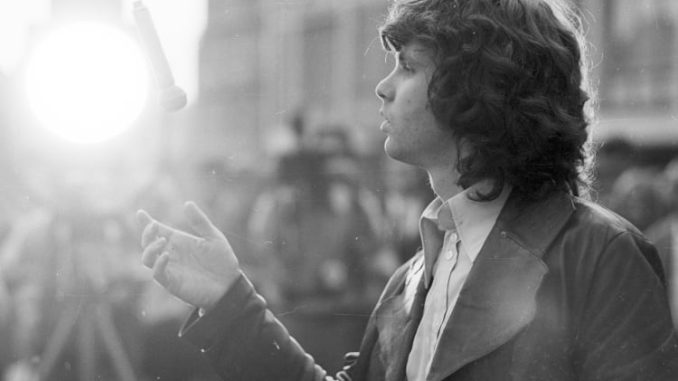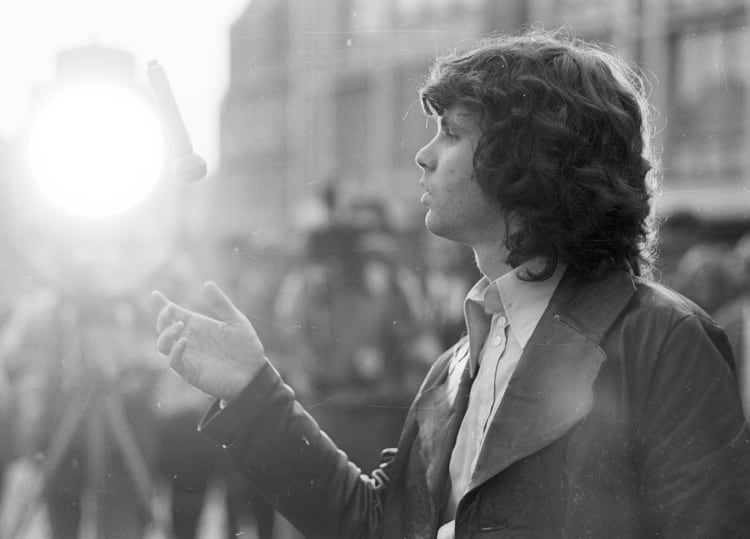
It’s hard to believe now, but the iconic track “Hello, I Love You” by The Doors, a song that would go on to top charts and become one of their signature hits, has its origins in a much earlier, lesser-known incarnation of the band. Nearly 60 years ago, long before “Light My Fire” or “Break On Through,” the tune was among a handful of tracks recorded during The Doors’ earliest days, when they performed under the name Rick & the Ravens.

This story goes beyond just a song: it’s a snapshot of how bands evolve, how songs are reworked, and how legacy is formed.
From Rick & The Ravens To The Doors
- Origins under another name: Before The Doors as we know them existed, keyboardist Ray Manzarek, Jim Morrison, other Manzarek brothers, and a few collaborators were part of Rick & the Ravens.
- Early recordings: In 1965, Rick & the Ravens recorded a six-song demo at World Pacific Jazz Studios. Among the songs in that early demo batch was a version of “Hello, I Love You.”
- Transformation into The Doors: That earlier period included musical experimentation, line-ups shifting, and refining songwriting. Eventually, the band reformed under the name The Doors, with Morrison, Manzarek, Robby Krieger, and John Densmore forming the core. Some of the material from those early Rick & the Ravens sessions was revived (rewritten, rearranged) when they were ready to record formally as The Doors.
The Song Itself: Early Days vs. Hit Version
- 1965 demo version: While it is difficult to locate publicly available recordings of the demo versions with high fidelity, those early tracks capture the embryonic form of “Hello, I Love You.” Lyrics, melody ideas, or motifs trace back to that Rick & the Ravens recording session.
- 1968 Official release: The Doors officially released “Hello, I Love You” in 1968 on their Waiting for the Sun album. It became a huge commercial success, going to #1 on the U.S. Billboard Hot 100 and in Canada.
Controversy And Legacy
- Artistic tensions: The Doors themselves had mixed feelings about “Hello, I Love You.” They reportedly felt the song was more pop-oriented and less representative of where they wanted their sound to go. Yet, under pressure from their record label seeking a hit, it made the cut and became one of their biggest.
- Allegations of influence / plagiarism: Over the years, critics and fellow musicians noticed similarities between the chord structure or riff of “Hello, I Love You” and songs by other bands, most notably The Kinks’ “All Day and All of the Night.” There have been claims that the Doors drew from that earlier song, though band members, especially guitarist Robby Krieger, have disputed direct copying. Some have said if there was influence, it may have been more diffuse (e.g. from cream, other rock styles of the time).
- Public perception & fanbase: The track continues to divide opinion among Doors fans. Some celebrate it as a high-point, a catchy and accessible classic. Others feel it strays from the darker, more experimental or poetic aspects that they value in The Doors’ catalogue. Still, there’s no denying its impact and reach.
Why This History Matters
- Illustrates how songs evolve: The journey from a 1965 demo (with Rick & the Ravens) to a chart-topping single in 1968 under The Doors shows how ideas incubate over time, taking shape, even being revisited and polished as a band’s vision matures.
- Shows the importance of early band identity: Even before the name “The Doors” became iconic, the early band members were experimenting, writing, and performing. Those early days are more than mere footnotes, they’re foundational.
- Reflections of the ’60s music industry: The tension between artistic integrity and commercial success, label pressure, and how a song’s potential is realized or suppressed, all were part of the 1960s rock milieu, and “Hello, I Love You” is a great case study.
- Legacy & influence: The song’s success reinforced The Doors’ mainstream position, enabling them to reach wider audiences. It also contributed to their image for better or worse, showing that they could play arena-friendly hits, but also keeping one foot in more experimental or underground terrain.
Conclusion
Nearly six decades on, “Hello, I Love You” remains a compelling piece of rock history, not just for its catchy hooks or chart performance, but for the story behind it: how ideas made in early, raw settings (like Rick & the Ravens) can grow, blend, shift names, and become something much larger.
It reminds us that in music, beginnings matter, demos, early versions, and alternate band names are often where the seeds of later successes are planted.
Leave a Reply